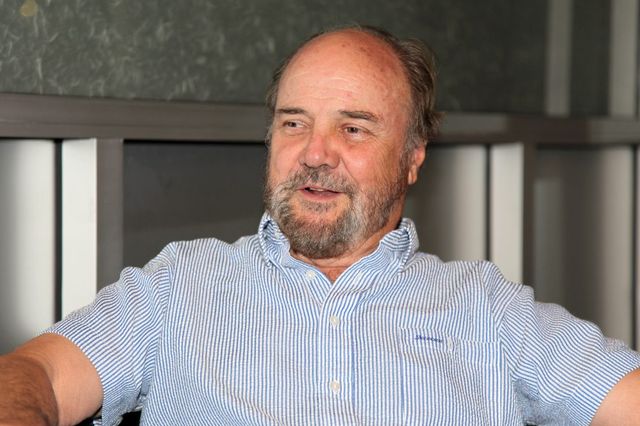John Duncan is a UCLA scholar of Korean history and teaches in the departments of Asian languages and cultures and history. Duncan is the former head of the Center for Korean Studies at UCLA and a member of the UCLA International Institute.
Before taking part in a Zócalo/UCLA panel discussion titled “Is War With North Korea Inevitable?” at the National Center for the Preservation of Democracy in downtown Los Angeles, he spoke in the green room about how South Korean society has changed since the war, and why he hasn’t traveled to North Korea.
How did your interest in Korea start?
During the Vietnam War years, the U.S. Army sent me to Korea. I was attached to the 2nd Infantry Division, which in those years was responsible for [part] of the DMZ [demiliatized zone]. And then after I got discharged from the Army I went back to Korea and studied, spent another four years there as a student. I knew I was going to be something with Korea, at that point; I just didn’t know exactly what I would be doing.
What about Korea did you connect with?
I really connected with the people. At that age, in my late teens or early twenties, I was really pretty skeptical about American individualism. And I went to Korea and I was exposed to a culture where it was not individualism, it was rather more group-oriented. And I found that kind of fascinating.
Was it obvious then that the country still was recovering from the war?
It was extremely poor at that time. Seoul was a big, bustling city but there were huge slums. And in the countryside, where I was, most of the people were living in the same basic way that their ancestors had been living a couple hundred years before.
As South Korea has prospered, since you first went there, has it retained that kind of group-oriented value system?
It’s eroding. South Korea has become a hyper-competitive society. That doesn’t lend itself to the kind of positive group ethos that I experienced there. There still are certain expectations about going along with the group and conformity in South Korean society. But the more positive aspects of that group orientation, they seem to have diminished.
Have you been to North Korea?
I have not. I’ve had opportunities to go and I have turned them down. I have in-laws in North Korea; the North Korean authorities know that. So I don’t want to do anything that would jeopardize the well-being of family there.
What’s the thing you’d most like Donald Trump to understand about North Korea?
One thing that is that Kim Jong Un is not going to strike first. And the second thing is that if war does break out in Korea, the primary victims will be the Korean people, and these are people who have been through very difficult times over the last hundred-some years, and they have struggled mightily on both sides of the DMZ to try to rebuild their societies. And they deserve a break.





